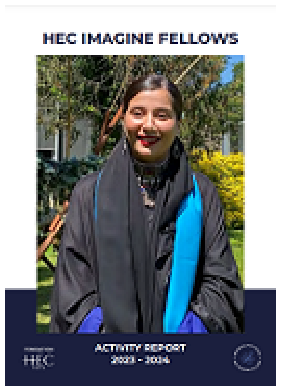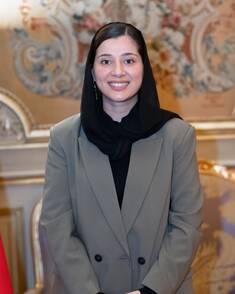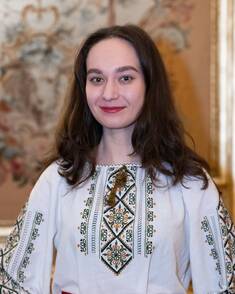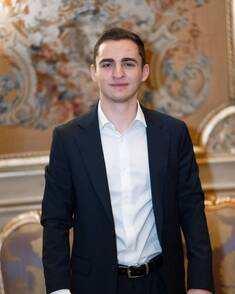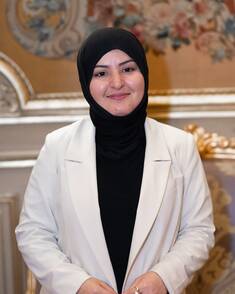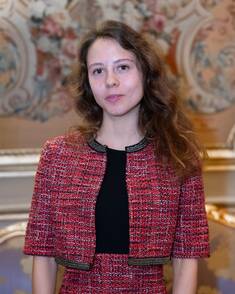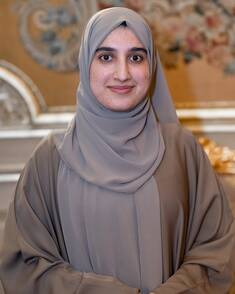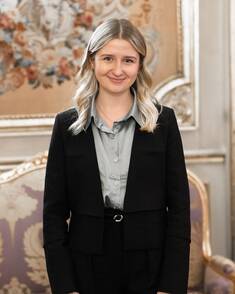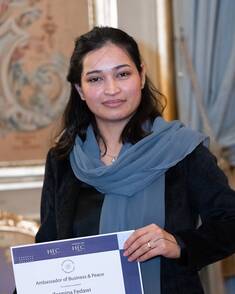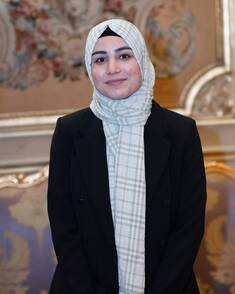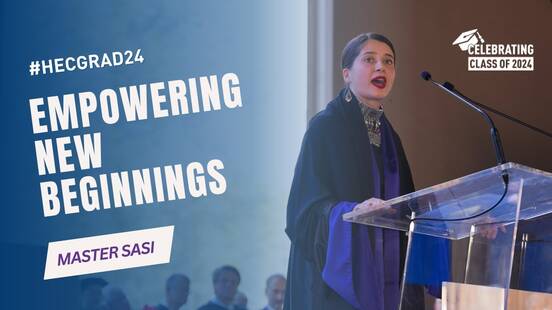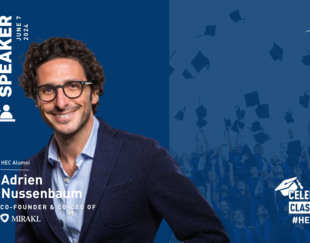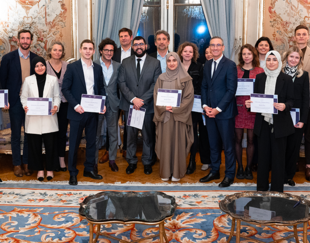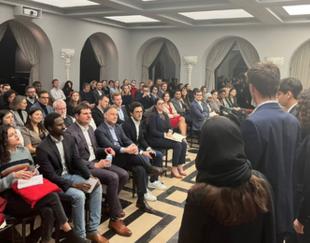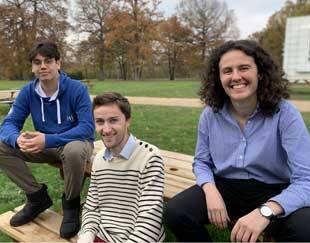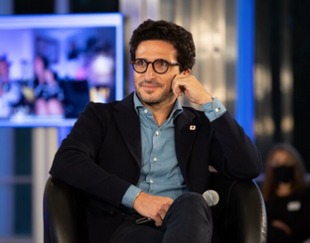The HEC Imagine Fellowship Program
Peace cannot be taken for granted. Faced with the challenges of a world with ever changing economic, ecological and social balances and the resurgence of violent conflict and social unrest, universities need to rethink their mission and ask themselves whether they are adequately educating students to contribute to conflict transformation, sustainable development and peace.
At HEC Paris, Europe’s leading business School, we believe that education can contribute to peacebuilding and that business is increasingly critical in building a safer world.
With 135 nationalities represented, the HEC campus is a unique experimentation ground for peace. We strive to foster a culture of peace, promoting diversity and inclusion.
We are reflecting on what more our institution can do to prepare the next generation of business leaders and entrepreneurs to become agents of peace and social change.
To address these pressing issues:
- We are integrating new courses on the themes of Business & Peace, and Business & Human Rights into our curriculum
- We are welcoming exceptional students war-torn countries in our programs,
- We are forums where students come together to engage in discussions on the role of business as a force for peace
Our goal is to build an international community of future leaders and entrepreneurs who will contribute to deepening understanding between countries to create a more peaceful, sustainable, and prosperous future.
As part of this mission, we launched the "HEC Imagine Fellows" program in 2022 for students from war-torn countries. Today, 12 students from Afghanistan, Belarus, Syria, and Ukraine have left their countries to pursue their studies on the HEC campus.
HEC Imagine Fellowship Students
Today, 12 students from Afghanistan, Belarus, Syria, and Ukraine have left their countries to pursue their studies on the HEC campus.
A unique scholarship program
We believe that education can contribute to peacebuilding and that the private sector plays an increasingly crucial role in creating a safer world.
The HEC Imagine Fellows program offers tuition and living expenses scholarships to exceptional students from war-torn countries. These students, selected through a rigorous process follow the same academic programs within the school as their peers. They demonstrate remarkable academic excellence and also exceptional resilience.
The HEC Imagine Fellows program embodies the deep conviction that education is a powerful force for the reconstruction and pacification of war-affected regions.
Since the program's launch in 2022, HEC has welcomed 12 students from Syria, Afghanistan, Belarus, and Ukraine. Their resilience and determination to pursue their education despite the obstacles they face testify to their willingness to build a better future.
Through their resilience and exceptional commitment, these students will not only contribute to their own personal success but also to the positive transformation of their home country.
The creation of this project
On October 6,2021, Adrien Nussenbaum, H01, entrepreneur and founding donor of the HEC Imagine project came to the campus for the HEC Foundation's Annual Gathering to unveil his donation to the school: €1 million to develop “HEC Imagine Fellows”.
Since the program's inception, many additional donors have joined in supporting talented students from war-torn countries. Together we can empower students to become global leaders, entrepreneurs and innovators that understand the power and scale of business as a force for peace.
Academic pathways dedicated to the themes of "business & peace" and "business & human rights"
As part of the HEC Imagine program, two new elective courses and an academy have been launched at HEC Paris to understand the major societal issues surrounding these topics.
The course focuses on several countries emerging from conflict or in the process of development, from Afghanistan to Iraq, through Libya and Somalia, and sub-Saharan Africa. It notably explores the role of the private sector in the development of local economies, in the construction of infrastructure, in the provision of basic services, as well as its potential impact on peace and stability.
The course also analyzes the role of public institutions, NGOs, foundations, and other civil society organizations, and assesses how these actors can combine their strengths and partner with the private sector for the benefit of communities.
Finally, it seeks to highlight new development models, in which inclusive growth, climate, and biodiversity are integrated, and analyzes the challenges of sustainable development in post-conflict environments and in low-income countries.
The course focuses on the most urgent global challenges, such as the elimination of child labor and forced labor. It aims to expose students to highly diverse geographical realities and initiate them to some of the very practical issues they will have to face in their professional paths. The course has the following objectives:
- Raise awareness about the importance of human rights and labor in the global economy,
- Introduce the international legal framework, including principles and fundamental rights at work,
- Provide a platform for discussion among students on how to combine the pursuit of meaning, responsibility, and business.
The academy, lasting 3 weeks, is a series of thematic seminars alternating between theoretical lectures and practical workshops, field studies, and group work.
The academy was developed by Charles Autheman and is taught by Jacques Audibert, Charles Autheman, Bertrand Badie, Alexandre Chatillon, Mayeul Kauffmann, Gaïdz Minassian, and Ricardo Perez-Nuckel.
It examines the determinants of the increasing number of conflicts, analyzing both the elements of continuity and the new motivations that drive engagement in these conflicts. It then looks at the consequences for business management and the role of future decision-makers in this context.
HEC Imagine in the Press
Latest news
If you want to have more information about the project, please contact:

If you are student, please contact:


